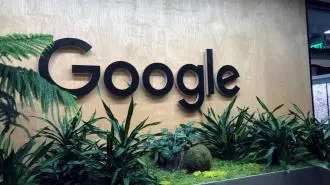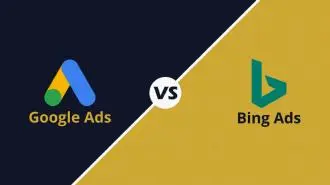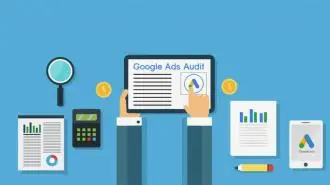Summary / TL;DR
Organic vs. paid traffic refers to how website visitors arrive, either through unpaid search results or paid advertising. Organic traffic is generated via search engines, direct visits, referrals, or social media without payment. It offers long-term value, greater trust, and stronger ROI, though it requires consistent SEO efforts and can take time to build. Paid traffic, such as Google Ads or sponsored social media posts, delivers immediate results and allows precise audience targeting but stops when the budget runs out. Combined strategies often yield the best results. Around 53.3% of traffic comes from organic search, yet nearly 90% of content fails to rank without effective SEO measures.
If your website fails to generate sufficient traffic, regardless of its aesthetics, functionality, or structure, its existence serves no purpose.
Your website attracts two main forms of traffic: organic and paid. Marketers often debate these traffic sources, considering aspects like trust and performance.
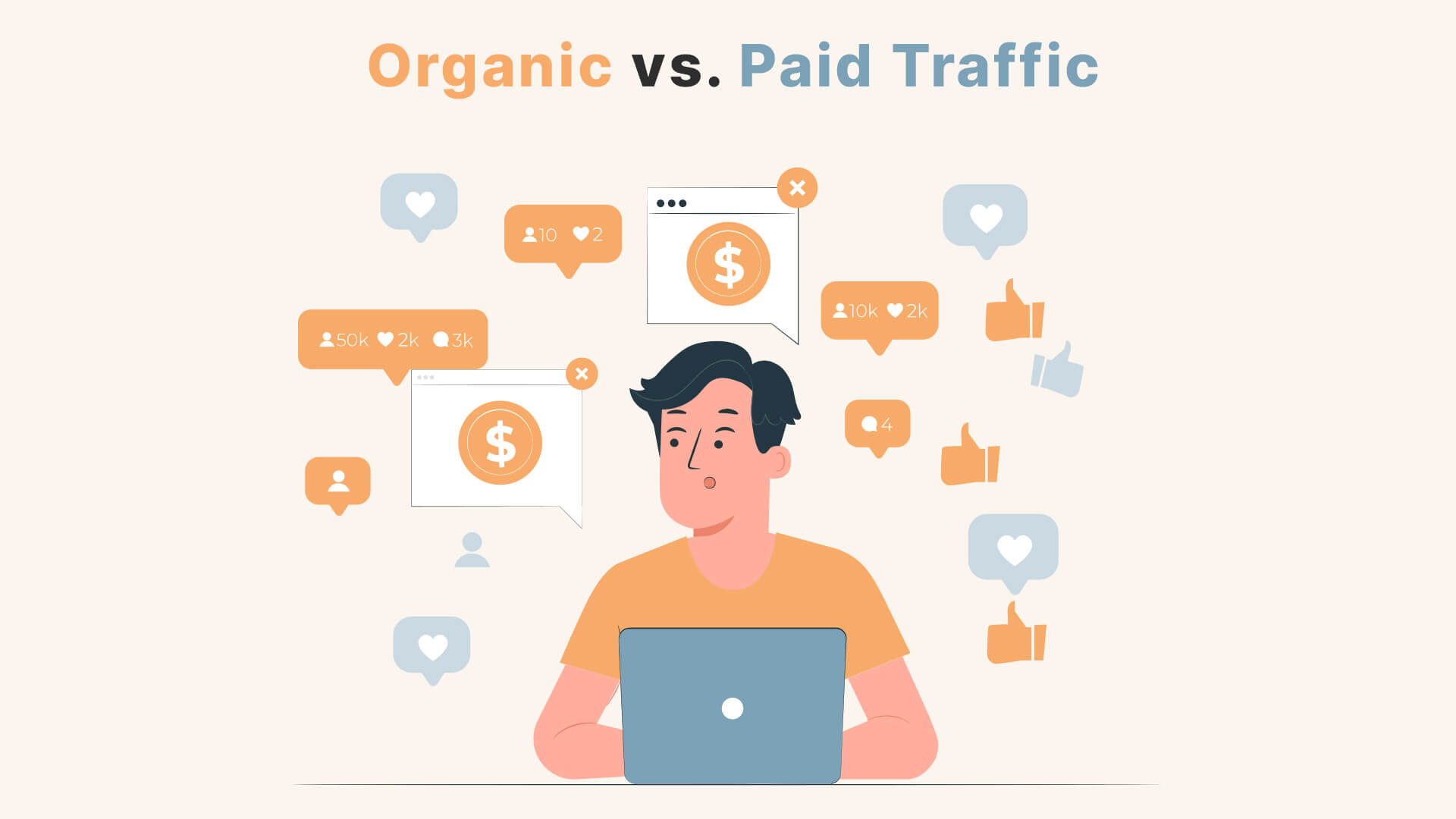
Getting organic traffic is a cost-effective, long-term strategy. However, paying for traffic can quickly increase your visitor count.
In the following article, we will introduce you to the characteristics of organic and paid website traffic, and you will learn some helpful tips on how to improve both. Let’s get to business and talk about paid and organic traffic!
Want to receive updates? Sign up to our newsletter
Each time a new blog is posted, you’ll receive a notification, it’s really that simple.
What Is Organic Traffic?
To generate organic traffic, your marketing efforts focus on attracting visitors to your website through unpaid or organic search methods. Organic traffic can be further classified into the following categories:
- Direct: when the visitor types the name of your website.
- Search: originates from search engines: Google, Bing, Yahoo, etc.
- Referral: originates from external websites.
- Social: it comes from social networks.
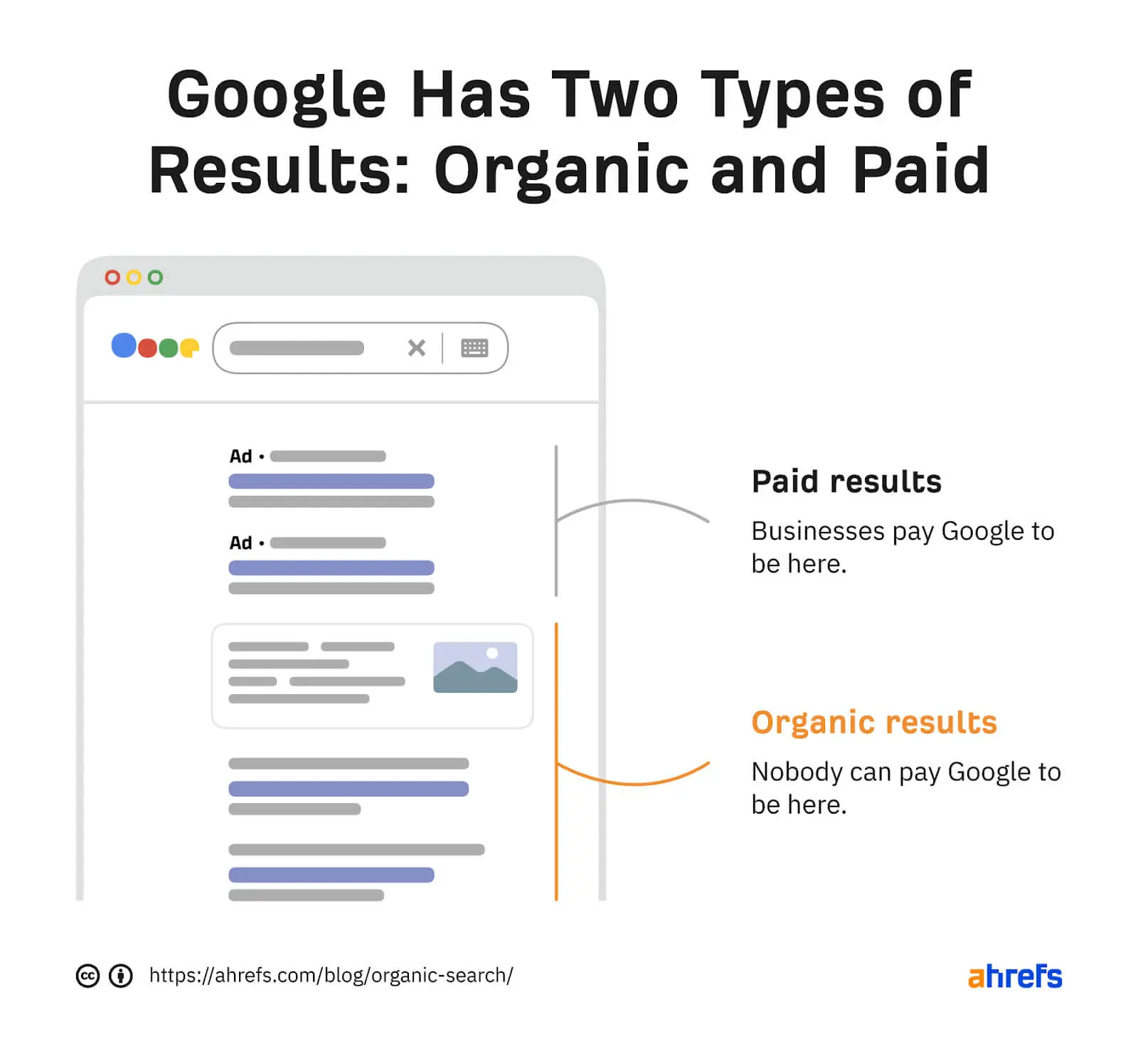
An internet user has a search intent, which can be navigational (seeking a specific item), informative (seeking information), or transactional (to complete a purchase). So, to break it down, let’s look at an example:
The user uses a smartphone or computer to enter keywords, also known as search parameters. When you do SEO right, you research keywords relevant to your field or industry. After creating quality content around these keywords, you’ve optimised it so that Google and your readers will recognise it as valuable and useful.
Thanks to your efforts, Google rewarded you by ranking your site higher on the search engine results pages (SERPs).
When users searched for a specific product or service, your website appears as the top result on search engine results pages (SERPs). As a result, organic visitors were enticed to click on your website, generating organic traffic.
Organic traffic is the opposite of paid traffic. Paid traffic is defined as traffic that is generated by advertisements.
Why Is Organic Traffic Important?
Organic traffic makes up a large percentage of the overall traffic you generate — as much as 53.3%, so it’s essential for several reasons.
A large percentage of organic traffic comes from users with problems or needs that your product or service can solve. So, you can convert all organic visitors into customers over time.
Organic traffic nurtures a long-lasting ranking in the top search engine results in pages because it is targeted, and targeted visitors tend to spend more time interacting with a site that answers their needs.
If you rely only on paid traffic, you may notice a drop in visitors once you pause your promotions and ad campaigns.
However, if you obtain good organic rankings for valuable terms, your popularity can only grow over time, and your competitors will have difficulty outranking you.
The sites that consistently rank on the first pages of Google are reaping the best results.
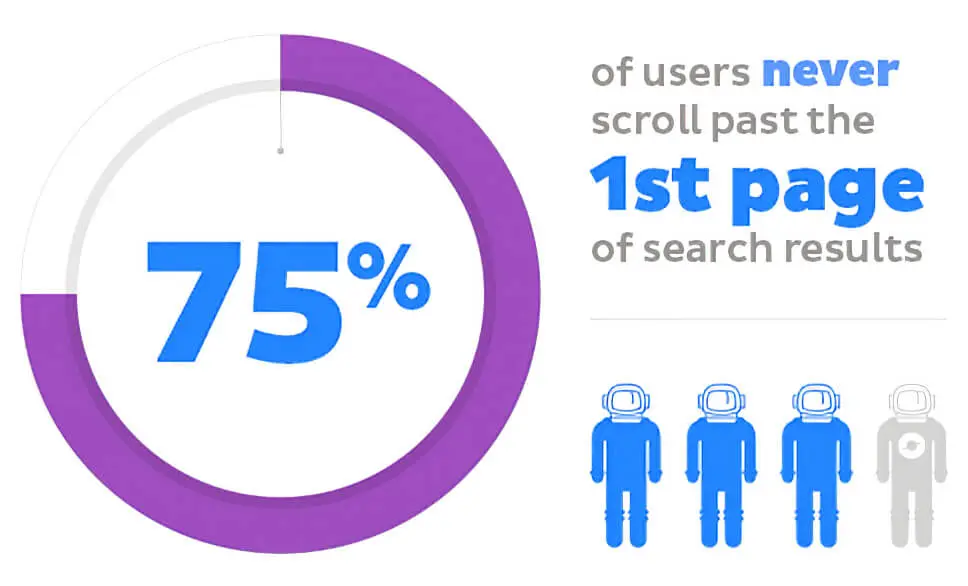
It is crucial to invest significant effort in generating traffic, as around 90% of all content fails to receive organic traffic from Google. You can position yourself within the remaining 10% and capture valuable traffic by implementing effective strategies.
Advantages Of Organic Traffic
Here are some of the significant advantages of organic traffic:

Cost
The most noticeable advantage of organic traffic is cost. If you apply SEO methods and do the research yourself, you will get visitors without paying a penny.
Credibility
While some internet users skip paid ads, most people trust organic search results, resulting in qualified leads.
Relevance
Search engine algorithms are continually evolving and becoming more sophisticated. Organic search results are frequently deemed more relevant than paid results, resulting in higher click-through rates.
Competitiveness
With a solid SEO strategy and constant adaptation, your search engine rankings can increase, potentially edging out competition from the first page of the search engine results page (SERP).
Return On Investment (ROI)
ROI from organic traffic tends to be stable and long-term.
Are There Any Disadvantages To Organic Traffic?
At first glance, it would seem that organic traffic has no disadvantages. How could that be bad if you get a decent number of visitors?
Search engines focus on well-established sites with high-quality content and powerful and authoritative backlinks. However, this type of traffic can be hard to attract if you don’t implement a carefully thought-out SEO strategy. Also, some ranking factors, such as the domain age, play an essential role, so don’t overlook them.
What Is The Best Way To Improve Organic Traffic?
Generating organic traffic involves two main components: on-page and off-page SEO.
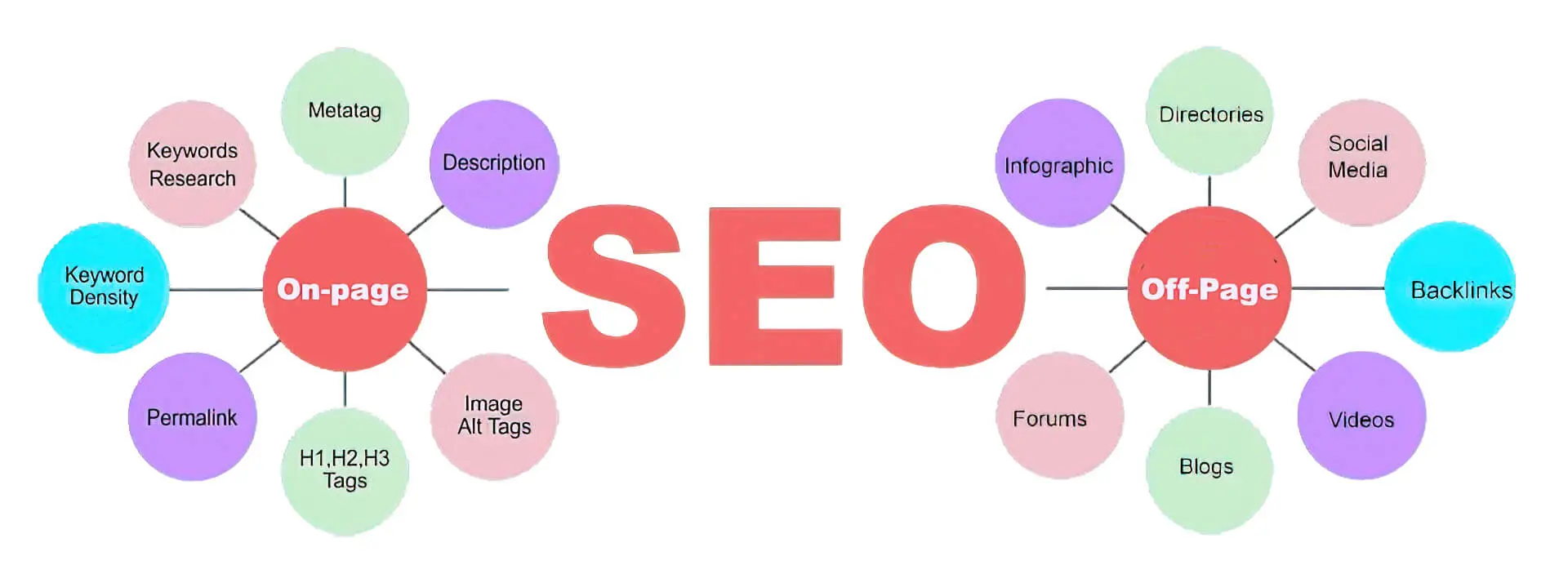
Organic search methods involve on-page optimisation, which aims to enhance the usefulness and value of your website for users. Emphasise optimising your keyword density and crafting content centered around those keywords.
Implementing off-page SEO tactics is essential, as it allows you to obtain strong backlinks from reputable, high-authority websites. These backlinks play a vital role in driving quality leads and boosting your organic traffic.
Lastly, optimise your site’s loading speed, and you’ll be on the right way to success. Listed below are some helpful tips:
Research Keywords Relevant To Your Industry
Keywords are the words users type into a search engine to find the information they need. When choosing your approach, don’t just focus on short keywords.
Long-tail keywords or phrases containing 3-5 words have a considerably higher potential that often remains untapped. Still, they can be very competitive and often impossible to rank for, especially if you are a beginner.
Once you’ve found the right keywords for your categories, product descriptions, and blog posts, you’ll move on to the next step, which is content creation.
If finding the right keywords and undertaking keyword research for your business seems daunting, consider contacting an online digital agency. Most digital marketers have paid SEO tools to ensure you are targeting the correct keywords.
Creating Good Quality Content
Developing quality content requires a deep understanding of your target audience and the problems your product or service can address. Craft content that provides value and addresses their needs.
People enjoy reading studies, articles that answer frequently asked questions, tutorials, and everything that can inform and educate them about your product.
To increase organic traffic, avoid keyword stuffing — it will not help you rank quickly and better.
You write equally to please Google and your readers, and both entities want natural text that is easy to understand. When writing, prioritise conciseness and substance, not length. Skilled writers can say more in 700 words than unskilled writers in 3,000.
Interlink Your Content
Interlinking is the interconnection of relevant pages on your site. It provides a better user experience (UX), more straightforward navigation through the site, and reduces your site’s bounce rate.
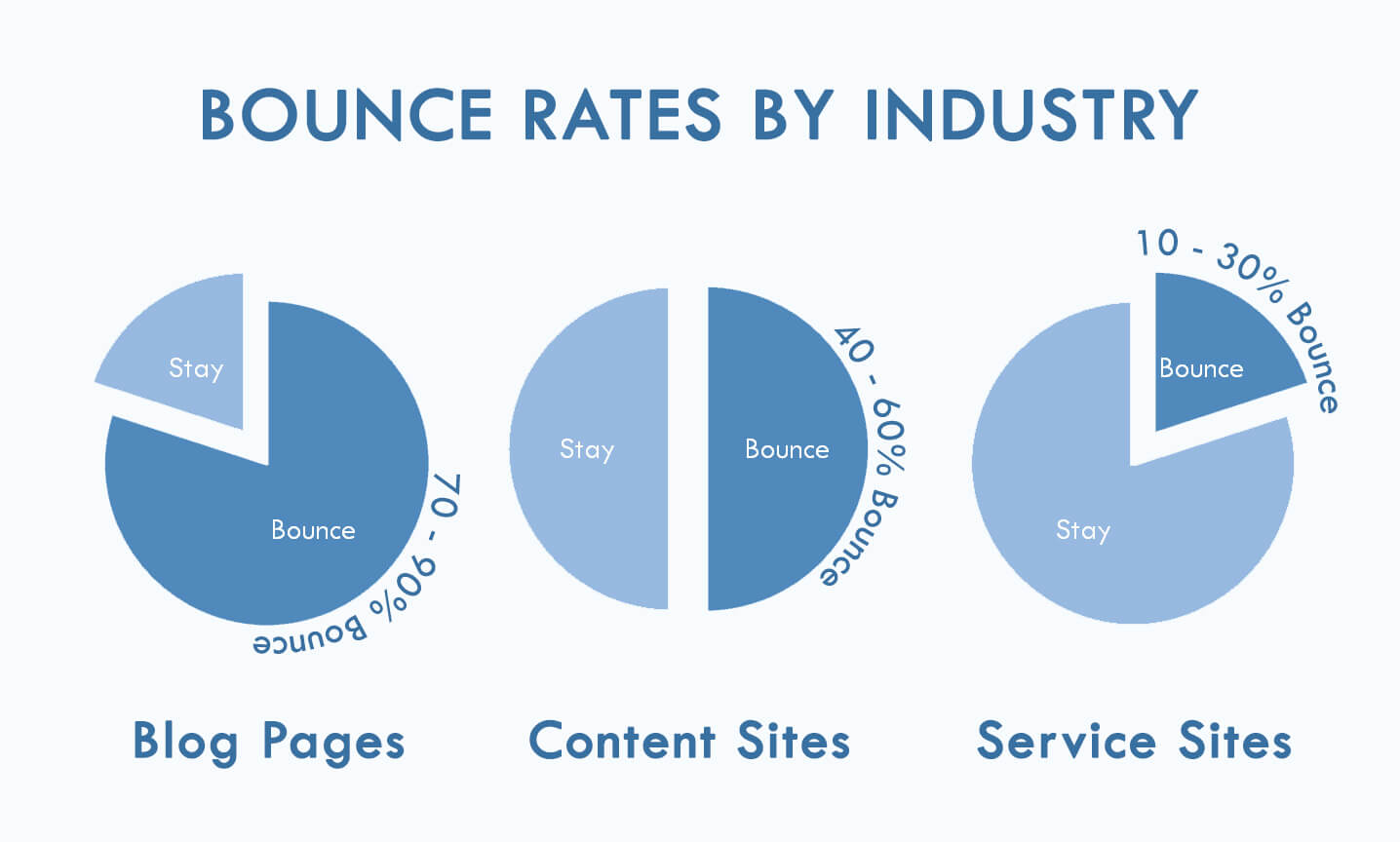
Linking to your internal pages positively affects your rankings, helps increase your online visibility, and ultimately generates more leads.
Optimising Your Images
If you’re not optimising for image searches, there’s a good chance you’re missing out on opportunities to drive organic traffic.
Visual searches have increased by 60% in the last two years and represent 30% of all search queries.
Choosing the right image alt is essential for your site’s SEO and ranking in image search results.
Before you upload any image, name it with relevant, descriptive keywords. Don’t forget to enter alternative text (alt-text). Visitors may understand the image, but the search engine needs other relevant clues.
Without alternative text, search engines can’t index the content of your image accurately.
Earn Quality External Links
External links or backlinks link other websites to yours. Create a solid link-building strategy to achieve better rankings and earn more organic traffic.
Investigate reputable sites in your industry, check their domain authority, and then reach out and connect with web admins. They will likely link to your content if they think it is valuable to their readers.
With backlinks, your site earns a boost in reputation. In Google’s eyes, they’re giving you a vote, saying your site is valuable.
Make Your Website Mobile Friendly
Everyday life is getting busier, mobile phones are becoming more advanced than ever, and many people find it easier to search on their phones.
In 2021, about 54.4% of searches were from mobile devices. This highlights the importance of mobile traffic for your business.
If your website has a poor loading speed or, worse, if it doesn’t load completely, optimise it ASAP, or you’ll lose valuable traffic!
Make sure your site is easy to access from a variety of devices. In its algorithm, Google favours mobile-friendly websites over those only optimised for desktops.
Promote Your Content On Social Media
SEO is the best way to increase organic traffic, but relying solely on SEO strategies could miss out on other valuable methods that can drive even more traffic.
Utilising social media ads is another excellent avenue to drive users to your article pages through social media marketing (SMM).
You can share your posts on social media to help drive organic traffic to your website. Not only does this bring your readers back, but they will generate new traffic if they share your posts.
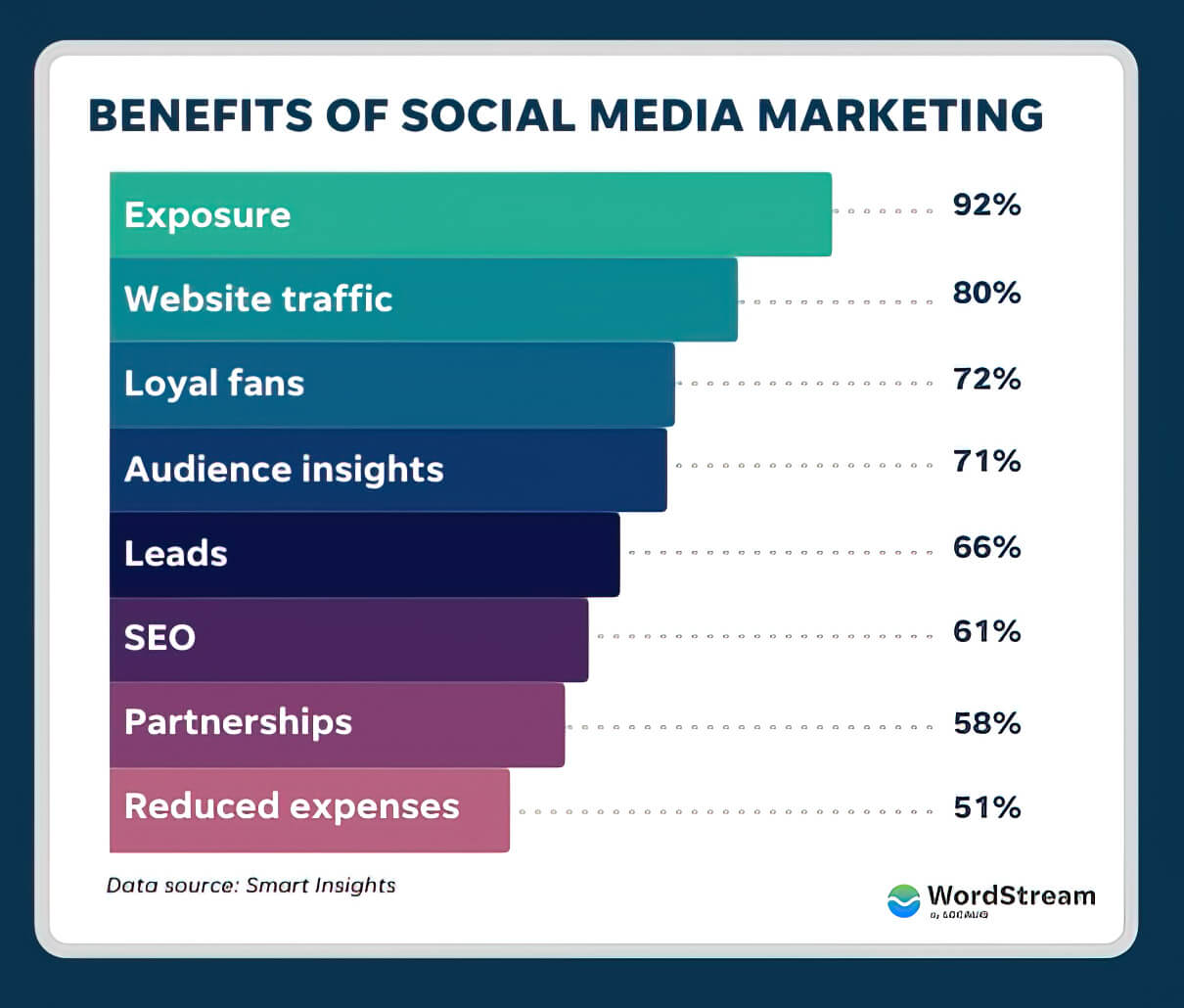
What Is Paid Traffic?
Paid traffic is the opposite of organic traffic. It comprises all visitors who come to a site after clicking on a paid ad, link, sponsored post or ad on social media.
So, if you come across a post on social media labelled as “sponsored”, it is a paid advertisement. In addition, you may have noticed that the top search engine results contain links labelled with Ad. Ads like those are paid advertisements.
{{'example-of-google-ads-sailing-lessons.jpg' | height | width | alt | title | lazyload | responsive}}
Advantages Of Paid Traffic To Your Website
There are undoubtedly several advantages to paid search traffic and a paid search campaign:
Instant Results
Instant results are achieved through paid marketing initiatives like Google Ads or sponsored social media posts. These methods provide an exact cost per outcome and deliver immediate outcomes.
Specify the demographics of your target audience, and run your ad. Your ads won’t take long to appear in front of potential customers.
Although SEO gives invaluable results, you must wait a few months for it to become truly effective. However, some industries must publish ads immediately.
If you don’t have time to wait, paid marketing is a great way to get traffic to your site immediately.
Effective Retargeting
Paid traffic is facilitated through various marketing channels that continually enhance their methods. After your campaign ends, you have the option to retarget visitors based on the analytics data and insights you have acquired.
Although you can set up the targeted customers’ age, gender, location, and interests, retargeting and remarketing will provide you with even better results.
Versatility Of Platforms
When aiming for paid traffic, many channels are available to attract it.
Social networks, including Facebook, Instagram, LinkedIn, Twitter, Pinterest, Snapchat, TikTok, and Reddit, give great results, but that’s not all. You also have Google Ads, Microsoft Ads, etc.
All of these platforms have advanced options for targeting your desired audience. You can get paid search traffic in many ways; combining the strategy that suits you best is up to you.
How To Obtain And Improve Paid Traffic
Here are some practical ways to increase paid traffic to your website:
Run Google Ads
Google Ads is a highly effective online advertising platform for driving paid traffic to your website. Research shows that Google Ads have a four times higher click-through rate (63%) compared to other online ad types.
Upon entering the desired search terms, Google displays a list of relevant search results that provide answers to the user’s query. Paid campaigns are often included among these search results.
Utilising Google AdWords for your service promotion can yield swift results, particularly through pay-per-click (PPC) ads. With PPC ads, you only pay for each click, reducing your financial commitment accordingly.
A few minutes after your PPC campaigns are published, you will notice increased traffic to your site, and part of that traffic will indeed convert to customers.
Use Social Media Marketing (SMM)
In 2022 social networks will have approximately 4.62 billion users, making them an excellent opportunity to advertise and obtain paid traffic.
Social media platforms serve as a means to amplify both your organic and paid traffic. They offer effective tools to target specific audiences and direct traffic to your website.
Run a social media advertising campaign, and target the desired audience with the platform’s demographics, interests, and other data. Within a few days, you will be able to see the results.
Social media marketing will help you generate traffic to your site, and you have a great versatility of platforms available, depending on your targeted customers.
Social media marketing involves the consistent publication of entertaining, creative, and valuable content. The number of likes and shares of your posts matters and could affect your rankings because they increase the visibility of your brand and links to your site.
Keep in mind that social media marketing must be subtle. An aggressive or even intrusive campaign may turn away relevant users.
Influencer Marketing
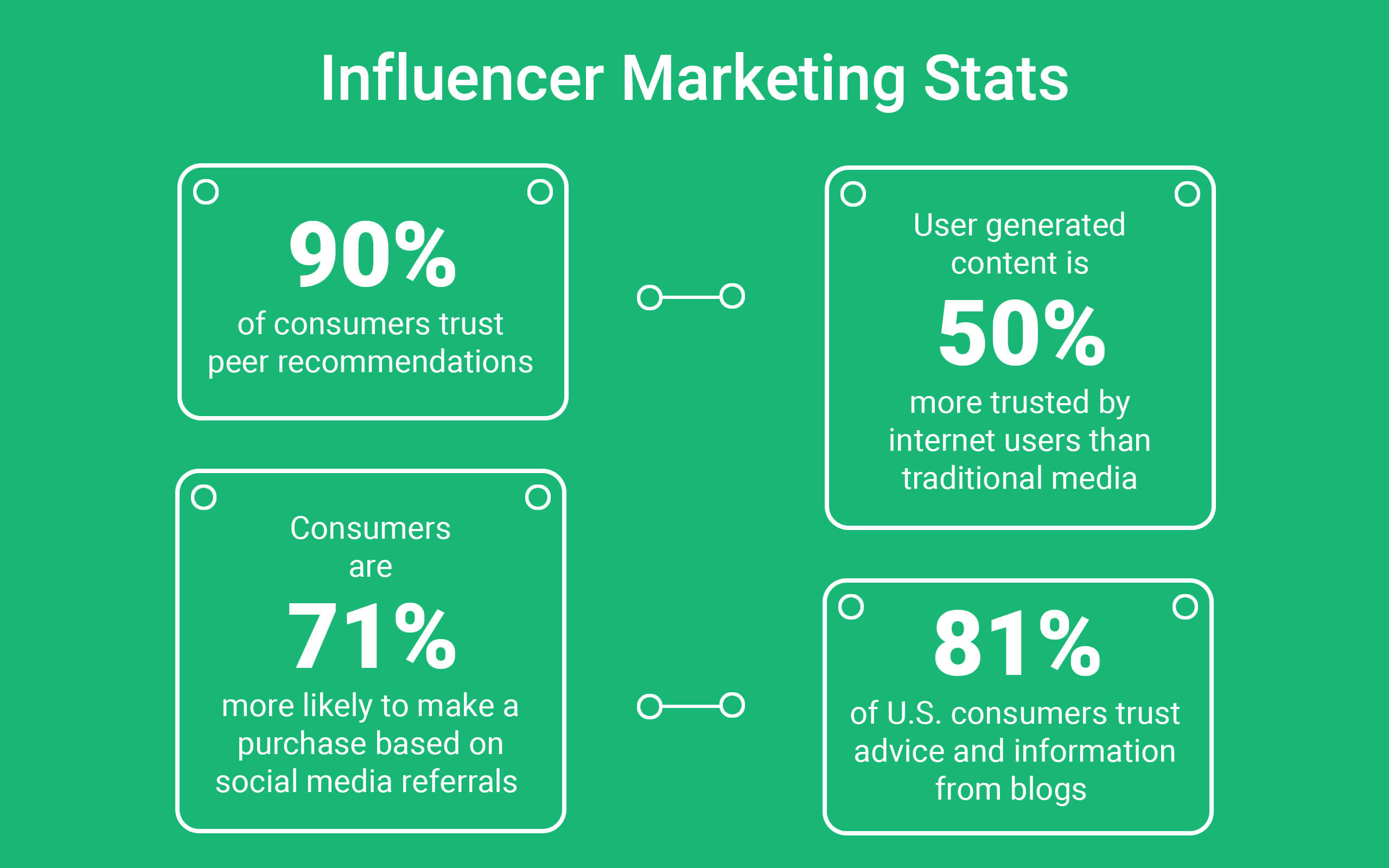
Influencers are prominent figures on social media who have a significant impact on a broad audience.
Influencer marketing is a subcategory of social media marketing, with the distinction that you will not pay for ads but for the services of a person who will promote your business. All major brands, like Nike, Puma, and Pepsi, have used this marketing type in their advertisements.
Influencers generally have a close relationship with their audience. An influencer can increase your reach and sales if they connect your brand with their audience meaningfully.
Remember that Instagram is still the leading network for influencer marketing, although it has fewer users (1.3 billion) than Facebook (2.89 billion).
Organic Or Paid Traffic: What Suits Your Online Business?
We have reached the end of this article on direct and organic traffic. The comparison between organic and paid search ads reveals distinct advantages, but the optimal results are achieved through their combination. Look into Google Analytics to help you understand your direct traffic and SEO efforts. A landing page is another great way to obtain direct and organic traffic!
To unlock your business’s full potential, embed a comprehensive SEO strategy into your marketing budget. Remember, it takes time and research, so have a solid plan before diving into your online marketing strategy. If you’re new to digital marketing, reach out to our team.
sitecentre® is an award-winning Australian marketing company striving to help small businesses succeed. You can rely on us to develop and implement a strategy tailored to your needs, budget, and target market.
That’s all for this guide. We look forward to seeing you next time!

